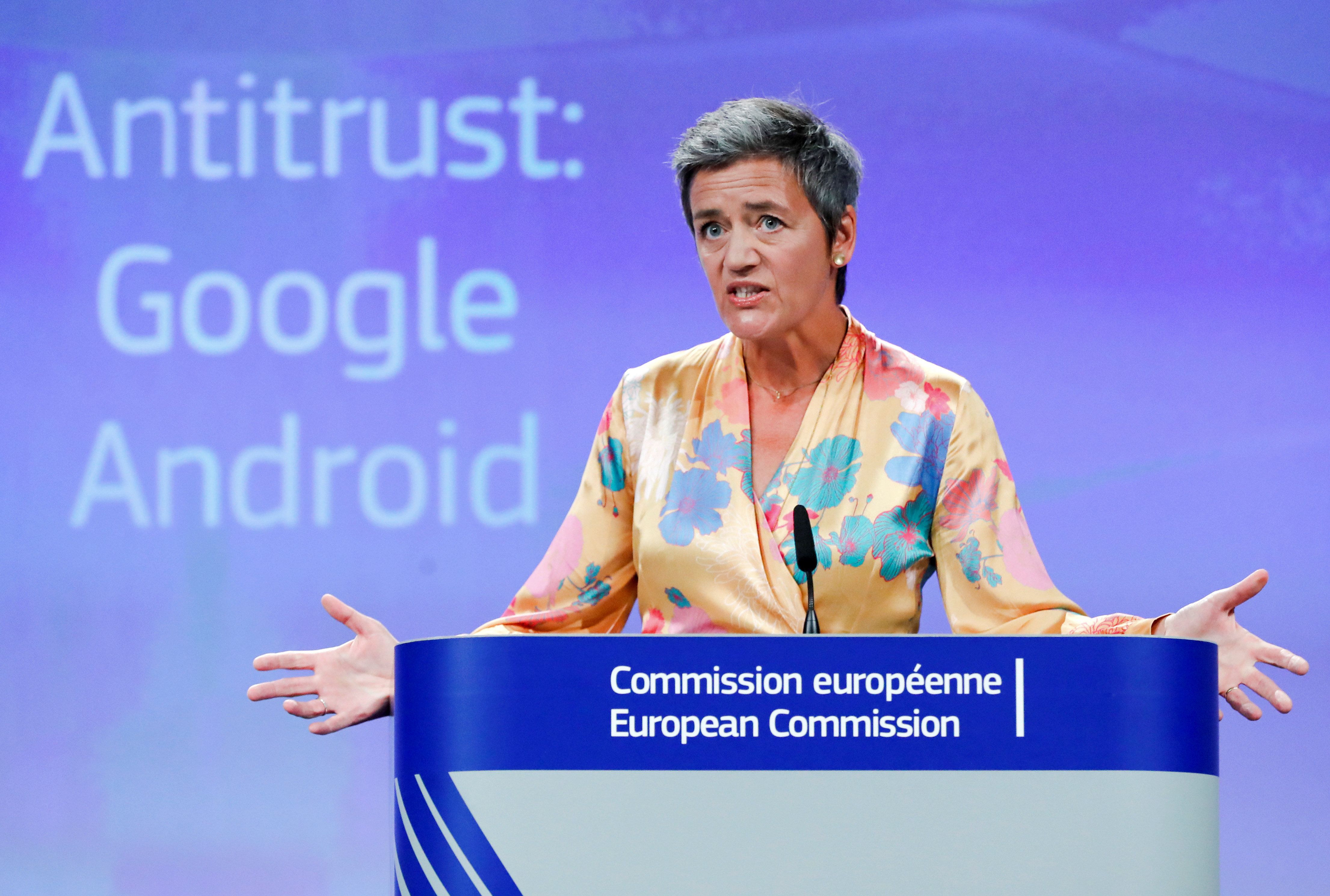On Wednesday, the European Union slapped Google with a record $5 billion antitrust fine, the latest in a string of judgments levied by EU competition czar Margrethe Vestager against US tech companies that dominate the mobile, online advertising, and internet search markets.
This is “Team Europe: Internet Police” in action: by taking on what they consider to be Silicon Valley’s excessive clout (in this case, the EU says Google used the market dominance of its Android operating system to force consumers to use its search engine), European regulators are seeking to shape the ways that global tech companies do business locally. If Google fails to get the case overturned on appeal, it’ll have to make big changes to the way it operates in the EU and, potentially, elsewhere.
A few thoughts from our own tech czar Kevin Allison:
This is not just a European phenomenon. Governments around the world are racing to assert sovereignty over an unruly and rapidly expanding digital sphere. Whether it’s the EU getting tough on antitrust or data protection, Russia requiring tech companies to store citizens’ personal data inside the country, or China banning foreign websites to support its domestic tech sector, the “World Wide Web” is starting to look like a patchwork of “Narrow National Webs” where regulatory regimes differ from one another.
It poses existential questions for tech firms: As the global regulatory landscape fragments, should Silicon Valley’s tech giants adopt different business models for different markets, depending on local requirements? Or should they engage in a race to the top, redesigning their businesses to comply with whoever’s rules are the strictest? What if they push back against the regulatory onslaught by threatening to withhold their business from countries where the cost of complying with national rules has become too high? Whatever the answer, the freewheeling, libertarian dream that inspired the founders of many of the West’s biggest tech companies is fading fast, and local politics are becoming a global challenge for the tech giants.
